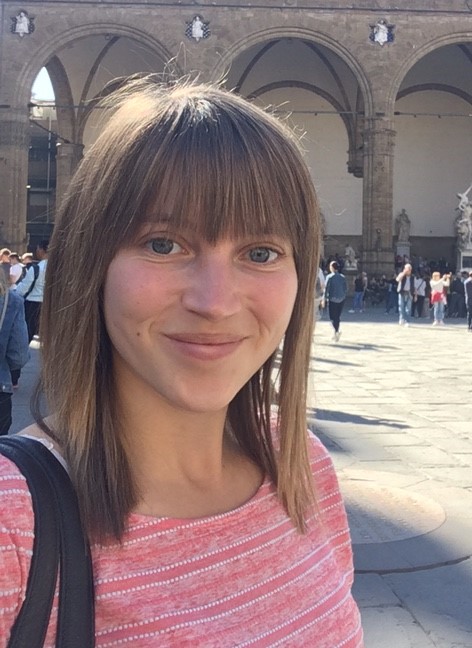Hannah Pyman is the Information Literacy Coordinator at University of Essex library, and attended the recent CILIP Information Literacy Group event on “Exploring intersections of scholarly communication and information literacy” in Liverpool. Hannah was the recipient of an ILG event bursary in honour of Marion Kelt and has kindly provided a review of the day.

I attended this event at Liverpool’s public library after being awarded a bursary place by the Information Literacy Group. The topic of this event was of particular interest to myself, as my current role at the University of Essex covers both information literacy and scholarly communication. As this is a new role to both my institution and myself, better understanding and discussing where these two key aspects of library services in Higher Education intersect proved very beneficial.
The opening presentation by John Hynes and Padma Inala, from the University of Manchester, gave a great introduction to how information literacy frameworks can help to promote open access. However, the consideration was raised that, while we should aim to get students to think about the whole lifecycle of information, in reality seeing large groups of students for short amounts of time makes this difficult. To overcome this, practical solutions were recommended. These included:
– Using real world examples of scholarly communication in teaching sessions, and focusing more on why we need open access, not simply how to access open access materials
– Adding examples of articles about open access and the publishing process to information skills sessions
– Highlighting the political aspects of the open science debate to students, to ensure that they are invested in the movement.
These practical tips highlighted that using every opportunity to think ‘open’ when designing IL instruction makes teaching students about open access much more achievable.
For the second talk, Elizabeth Gadd from the University of Loughborough spoke about their revised responsible metrics policy. It was highlighted throughout that universities need to align their assessment and reward with open science. The key concept I took away was that responsible metrics alone are not enough; we also need responsible people. Through considering the research evaluation food chain, it became clear that all stakeholders have an important role to play in achieving this. As institutions, we need to play our part, but also work with the other stakeholders. Before we can achieve this, however, it was said that there is an urgent need for research evaluation literacy within institutions; from researchers to university practitioners and university leaders. I think this is crucial for the future of scholarly communications, and is something I will certainly be taking forward from this conference.
After a morning break, Chris Morrison from the University of Kent spoke about recent research into the value of the CLA licence. In relation to open access and teaching resources, it was found that 38% of articles used in teaching were available OA, but only 7% had a reuse licence, and only 3% had a licence that specifically allowed for storing materials in an e-reserve. This highlights a key issue with using OA material in teaching, and yet it was concluded that there is scope for acquisition librarians to collaborate with research support libraries to see how openly-licenced materials can be better used in teaching. Further in-library collaboration discussed included subscription teams speaking more with scholarly communications teams to better understand value for money in terms of APCs vs. subscription costs. These processes are just beginning at my institution, so it was very useful to discuss this concept with colleagues at the event.
The final formal session of the day was led by Claire Sewell from the University of Cambridge, who considered the ever-changing skills needed for scholarly communication roles. It was interesting to consider that every role within a Higher Education library has some level of customer service, as this led to the conclusion that all members of staff should have a basic knowledge of scholarly communication. Considering how best to train staff in these areas therefore becomes an important part of scholarly communication roles. In terms of more specialist knowledge required, the importance of attending conferences like UKSG, as well as keeping up to date with training and professional reading, was emphasised due to the fast-moving landscape of scholarly communication.
During the afternoon’s final discussion, I took the opportunity to consider further the ways in which organisational changes can better support the intersections of scholarly communication and information literacy at our institutions. This was a thought-provoking discussion, which varied from considering how different library teams can more successfully collaborate in the pursuit of more open practices, to broader problems of a lack of understanding of scholarly communication at an institutional level.
In all, the day provided an invaluable opportunity to consider where two crucial aspects of our profession intersect, and gave some very useful and practical ideas for how to more successfully collaborate to achieve common aims. My thanks go to the Information Literacy Group for giving me the opportunity to attend.
What are your thoughts and experiences on the intersections of scholarly communication and information literacy? You can leave your comments below.




Pingback: Por una comunicación científica abierta y equitativa